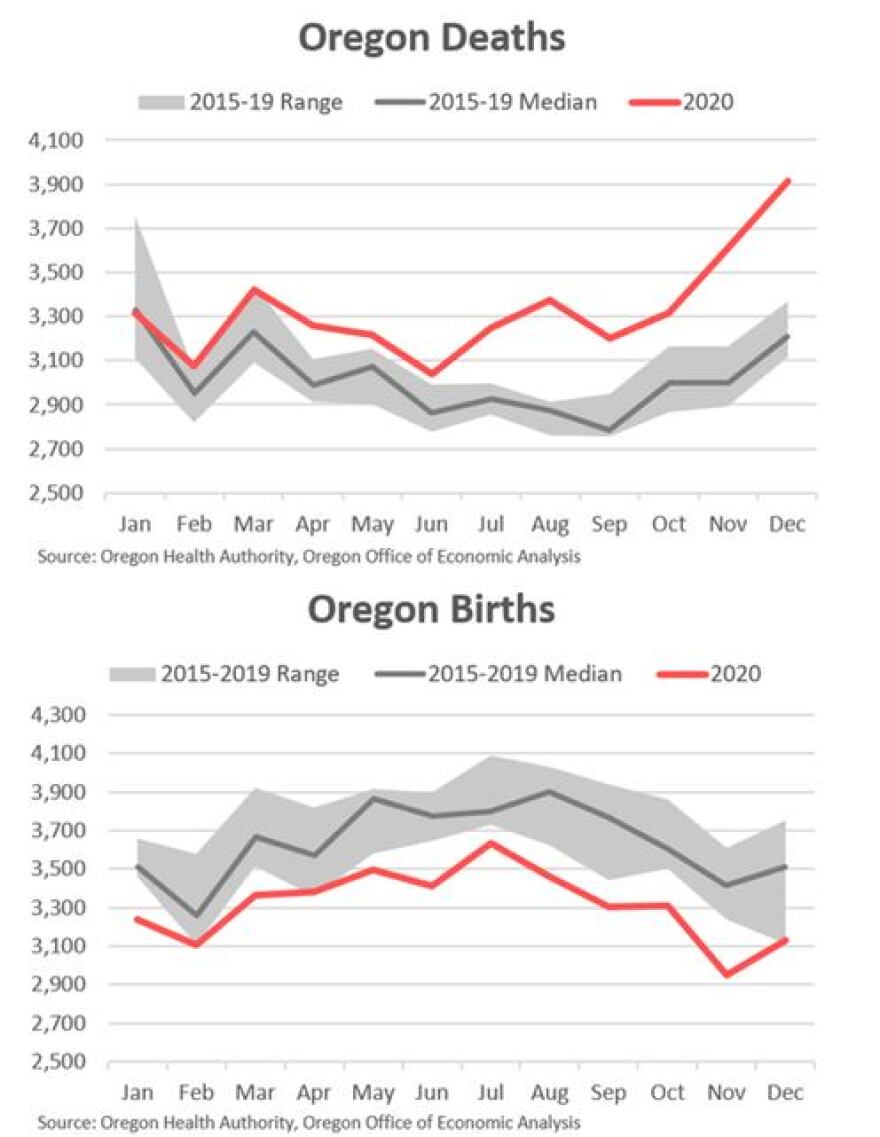For the first time in recorded history, deaths outnumbered births in Oregon.
For years, Oregon’s been averaging about 1,500 more births a year, than deaths. But since the great recession in 2008, that average has gradually been dropping.
Josh Lehner, with the Oregon Office of Economic Analysis, said COVID-related deaths last year finally pushed the number into negative territory — not by a lot — but about 200 more Oregonians died last year than were born.
“We’re not seeing a rising number of births in Oregon. We’re seeing a very low fertility rate,” said Lehner. “And deaths have been rising.”
Preliminary numbers show deaths increased about 7% because of COVID-19.
But the pandemic is far from the only reason Oregon passed this new threshold.
Deaths have been rising mainly because the country’s largest generation, baby boomers, is now retiring and dying.
Women of childbearing age are also not having as many children as they say they would like.
Lehner said the reasons are complex, “Whether it’s childcare costs, housing affordability or work-life balance. Like: ‘I’m working so much I won’t have enough time to spend with the kids. Or if I spend more time with the kids, then I won’t make as much money and we’ll have financial problems,’” said Lehner.
But Oregon’s population is far from petering-out. When statisticians include the number of people moving into the state, then the population continues to increase at about 1% a year — the 12th fastest in the nation.
So last year there were about 31,000 more Oregonians than the year before. That’s equivalent to the population of Redmond.


Copyright 2021 Oregon Public Broadcasting






